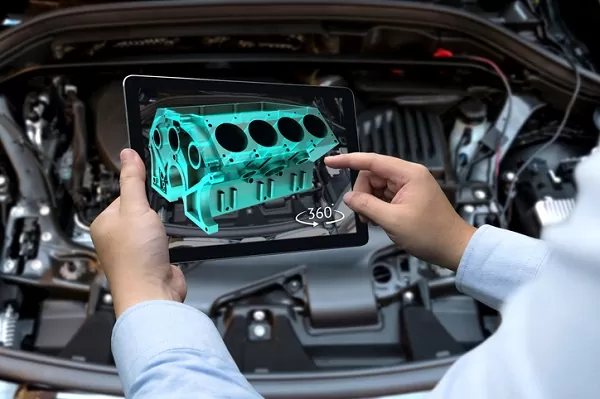DUI and DWI charges are serious. Efforts to convict you vary from state to state, but in all cases, it’s better to beat this charge than to be beaten by it. The best position in these cases is always to fight hard and smart.
There are some preferred methods lawyers use to avoid a DUI conviction. Keeping in mind that breathalyzers are flawed, police make mistakes, medical conditions factor in, and other components can all help you beat the charges.
Every day DUI charges are dropped. Contacting the right attorneys increases the chances of you avoiding the headache of a DUI conviction. If you’re in Seattle and facing DUI charges, contact Weber Law – DUI Lawyers to set up a free consultation.
Best Defenses Against a DUI
There are three categories to defend against DUI charges. They are:
- You weren’t intoxicated
- You weren’t driving impaired, and/or
- The arresting officer violated your rights during the stop
Having been arrested on DUI charges doesn’t mean giving in and accepting the prosecution’s narrative about you. For the sorts of penalties, fines, and social stigma that people who are convicted of DUI experience, it’s extra important to fight the charges as smartly and hard as possible. The right lawyer will guide you through this.
Objective Symptoms Don’t Prove Intoxication
Additionally, a DUI defense that gets very good results is to exploit the weaknesses of any prosecution’s arguments that physical symptoms of intoxication are acceptable proof of you having been under the influence.
Physical appearance is often a factor in such cases. Arresting officers cite any number of physical phenomena as evidence of intoxication. These include:
- Red eyes
- Slurring words
- Flushed cheeks or other facial features
- Smelling alcohol on your breath
- An analysis of your gait
With the correct counsel, speculative factors are thoroughly dismantled, and exposed for what they are – objective signs and symptoms of intoxication.
When a veteran firm fights for you, they’ll make it clear that numerous factors could’ve contributed to your physical state during the stop. Factors like:
- Fatigue
- Illness
- Irritated eyes
- Medications
- Seasonal or acute allergies
- Stress
- And more
Seasoned attorneys mount defenses effectively dismantling speculative factors levied against you. Your legal representation should expose that tests of balance and coordination can be affected by various factors. For example:
- Anxiety
- Clothing
- Fatigue
- Clumsiness
- Orthopedic conditions
- Other issues
Field Sobriety Test Flaws
These are all challenges known to result in successful DUI defenses. The three “standardized” field sobriety tests (FSTs) are:
- The Horizontal Nystagmus Test
- The Walk-and-Turn Test, and
- The One-Leg Stand
Even the reliability of the FSTs themselves will be called into question; as well they should.
The list of problems with FSTs is too great to ignore. Below is a list of FST testing methods, protocol points, and problems to be considered:
- Officers administer the tests but don’t acknowledge problems between training and field application
- Test conditions scarcely match up with real-life situations
The presence of three different tests opens up the prosecution for having to prove the burden of consistency. If the tests were so good, why doesn’t just one do the trick?
Proper 15-Minute Observation Protocol
Officers often cut corners. An observation period of 15 minutes is required before breathalyzers are to be administered. This step is often overlooked. Once exposed, attorneys commonly attack this point and weaken the prosecution’s case.
For example, an officer cannot write up paperwork and observe a driver at the same time.
Defense attorneys who exploit these facts get the results clients want and deserve.
Lack of Officer Compliance With Regulations
State laws determine DUI testing protocol. Below are some points:
- A 15-minute observation
- Calibration and maintenance of equipment
- Execution of tests
- Training for conducting testing
- Proper collection, handling, and storage of blood (or, in rare instances, urine) samples.
Officers often skip steps. If officers fumble any of these steps, your case might get thrown out.
When Arresting Officer(s) Don’t Follow Procedures
Citing the failure of offices to follow protocol is a strong defense strategy. DUI probes are to be conducted following guidelines designed to protect you from police negligence. These guidelines include, but aren’t limited to:
- Probable cause preceding detainment
- Being informed of your Miranda rights
- Articulation of reasonable suspicion
- Obtaining a warrant before a blood draw
- And more
Should one or more of these steps be neglected, your DUI lawyer will motion for a “suppression hearing”, and there is a strong chance that your case will become stronger than before. Charges are dropped or reduced once it’s been exposed that officers flubbed the stop.
How to Get Out of a DUI or DWI
The most important things that you can do are to stay vigilant, don’t talk to the police, record everything that you observe, exercise your right to refusal, and immediately secure a seasoned attorney to fight on your behalf.
How to Fight a DUI Charge
Working with your lawyer to challenge the prosecution’s assumption of intoxication is the way to go. The prosecution must be made to prove beyond the shadow of a doubt that you were intoxicated. It’s a tall order, and the key is to get them to reduce the charges or to drop them altogether.
Go Home







